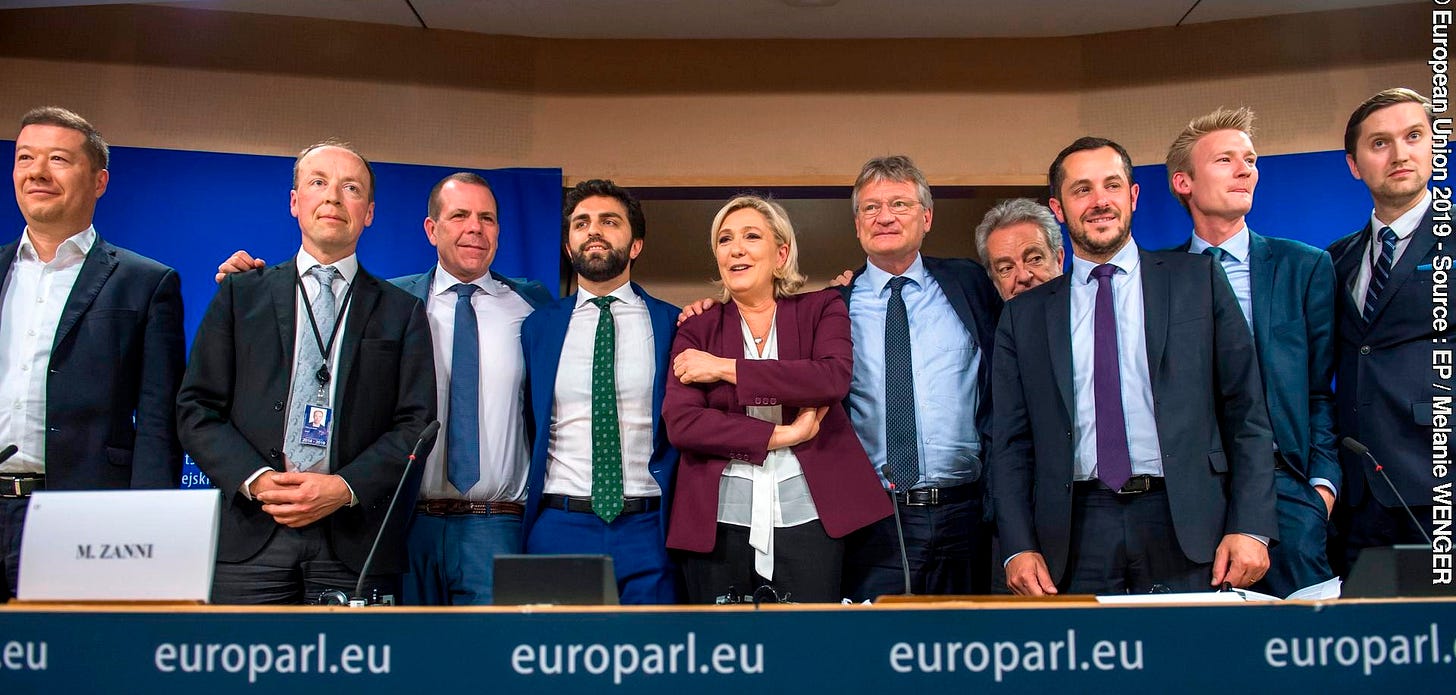The EU Parliament's right-wing 'Venezuela coalition'
President von der Leyen's center-right EPP promised to shun the far right in a 'cordon sanitaire' with the center left and liberals. Did they break that cordon yesterday?
Ahead of June’s European Parliament election, as polls were starting to indicate that a combined far right could emerge as the largest group in the new term, all eyes were turning to the center-right European Peoples Party (EPP) of Ursula von der Leyen. Under the leadership of group chair Manfred Weber, the EPP was veering to the right during the election campaign - attacking von der Leyen’s Green Deal and embracing anti-immigration rhetoric. At the same time, von der Leyen was making overtures to Giorgia Meloni, the prime minister of Italy and president of the far-right (sometimes called ‘hard right’) European Conservatives and Reformists (ECR) party at European level. Both von der Leyen and Weber seemed to be hedging their bets in case Meloni’s ECR and Marine Le Pen’s further-far-right Identity & Democracy (ID) group together emerged as the largest force in parliament, making Meloni a kingmaker.
In the end, the polls were wrong. While the far right had major success in the EU’s two biggest countries, France and Germany, they underperformed elsewhere (most conspicuously in Hungary and the Netherlands where they are in power). There was no formulation where an EPP-ECR-ID alliance could have commanded a controlling majority, and so the option was removed from the table for the EPP whether they wanted it or not. The centrists (EPP, Scholz’s center-left S&D and Macron’s liberal Renew Europe) banded together once again to form the ‘Ursula majority’ to confirm the EU’s president for a second term.




